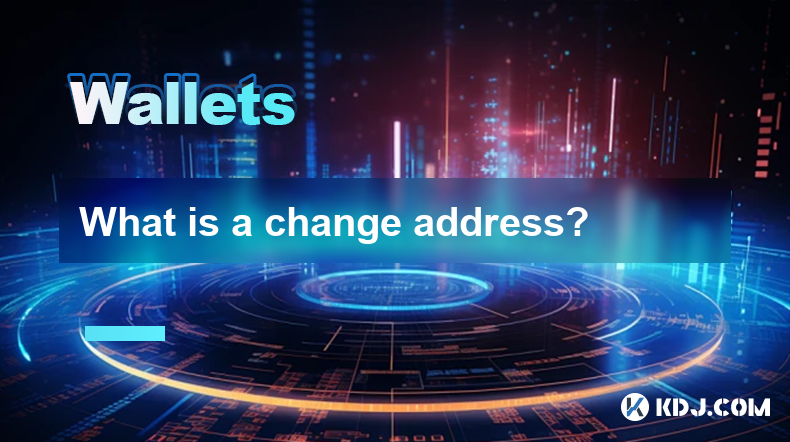-
 Bitcoin
Bitcoin $99,560.3949
2.67% -
 Ethereum
Ethereum $1,951.2300
6.28% -
 Tether USDt
Tether USDt $1.0001
0.01% -
 XRP
XRP $2.2064
3.09% -
 BNB
BNB $613.8040
1.33% -
 Solana
Solana $154.0293
4.38% -
 USDC
USDC $0.9999
-0.01% -
 Dogecoin
Dogecoin $0.1830
5.58% -
 Cardano
Cardano $0.7176
5.29% -
 TRON
TRON $0.2508
1.79% -
 Sui
Sui $3.7465
10.63% -
 Chainlink
Chainlink $14.8531
7.06% -
 Avalanche
Avalanche $20.9166
5.91% -
 Stellar
Stellar $0.2736
4.31% -
 Bitcoin Cash
Bitcoin Cash $414.7250
13.08% -
 UNUS SED LEO
UNUS SED LEO $8.8023
1.31% -
 Shiba Inu
Shiba Inu $0.0...01340
4.45% -
 Hedera
Hedera $0.1858
4.96% -
 Toncoin
Toncoin $3.1179
3.29% -
 Hyperliquid
Hyperliquid $21.6150
1.58% -
 Litecoin
Litecoin $92.0306
0.75% -
 Polkadot
Polkadot $4.2501
7.01% -
 Monero
Monero $298.2987
4.40% -
 Dai
Dai $1.0002
-0.02% -
 Bitget Token
Bitget Token $4.3415
0.41% -
 Ethena USDe
Ethena USDe $1.0004
0.00% -
 Pi
Pi $0.6197
6.41% -
 Pepe
Pepe $0.0...09091
11.37% -
 Bittensor
Bittensor $400.4217
9.80% -
 Uniswap
Uniswap $5.2244
7.18%
What is a change address?
By leveraging change addresses, users can safeguard their cryptocurrency transactions, enhance privacy by concealing transaction history, and improve efficiency by consolidating change into separate addresses.
Feb 20, 2025 at 03:43 am

Key Points:
- Understanding Change Addresses
- Identifying Common Types of Change Addresses
- Benefits and Use Cases of Change Addresses
- Steps to Create a Change Address
- Frequently Asked Questions (FAQs)
What is a Change Address?
A change address is a unique cryptocurrency address generated after a transaction to receive the remaining balance, also known as change or unspent funds, after the desired transaction amount has been sent. It serves as a destination for the surplus cryptocurrency, preventing its return to the sender's original address, thereby enhancing privacy and transaction efficiency.
Types of Change Addresses:
- Internal Change Addresses: Created by cryptocurrency wallets or exchanges for user convenience, these addresses are specific to a particular account or platform. Transactions to internal change addresses remain within the same wallet or exchange, improving efficiency and reducing transaction costs.
- External Change Addresses: Generated by the sender, these addresses are separate from the wallet or exchange account. They provide enhanced privacy by preventing the sender's transaction and address history from being linked. External change addresses can be specified in the transaction initiation process or auto-generated by certain cryptocurrency wallets.
- Multi-Output Addresses (MAOs): A type of change address that allows multiple outputs within a single transaction, making it efficient for dividing and distributing funds to various recipients simultaneously. MAOs enhance privacy by concealing the individual amounts sent to each recipient.
Benefits and Use Cases of Change Addresses:
- Enhanced Privacy: By using change addresses, users can conceal their transaction history and the origin of funds, protecting their financial privacy.
- Improved Security: Change addresses help prevent the accumulation of funds in the sender's original address, minimizing the risk of theft or cyberattacks.
- Reduced Fees: Some cryptocurrency networks charge transaction fees based on the number of outputs or addresses involved. Using change addresses can reduce fees by consolidating multiple outputs into a single transaction.
- Transaction Efficiency: Change addresses expedite transactions by avoiding the extra step of sending change back to the sender's original address.
- Easier Tracking: Sending change to dedicated change addresses facilitates simplified record-keeping and accounting, especially for businesses or individuals with high transaction volume.
Steps to Create a Change Address:
- Determine Compatibility: Ensure that your cryptocurrency wallet or exchange supports change address creation.
- Choose Address Type: Decide whether to use an internal or external change address based on your privacy and convenience requirements.
- Generate Address: Most wallets and exchanges provide an option to create new change addresses. Follow the instructions in your chosen platform's interface.
- Specify Address (Optional): If desired, you can specify an external change address during the transaction initiation process.
- Use Change Address: When initiating a transaction, select the generated change address as the destination for any remaining funds.
FAQs:
- Q: Are change addresses necessary?
- A: Change addresses are not strictly necessary, but they offer significant benefits for privacy, security, and transaction efficiency.
- Q: Can change addresses be used repeatedly?
- A: It is generally recommended to use a unique change address for each transaction to enhance privacy. Reusing change addresses may compromise confidentiality.
- Q: What if I lose access to my change address?
- A: Access to funds sent to a change address requires control over the corresponding private key. If access is lost, the funds may become irretrievable.
- Q: How can I find my change address?
- A: Most cryptocurrency wallets and exchanges display the change address associated with each transaction. You can retrieve this information from your transaction history or by contacting customer support if needed.
- Q: Are change addresses used for all cryptocurrencies?
- A: Change addresses are primarily used with cryptocurrencies that follow the Unspent Transaction Output (UTXO) model, such as Bitcoin and Litecoin. Some cryptocurrencies, like Ethereum, utilize a different approach that does not typically require change addresses.
Disclaimer:info@kdj.com
The information provided is not trading advice. kdj.com does not assume any responsibility for any investments made based on the information provided in this article. Cryptocurrencies are highly volatile and it is highly recommended that you invest with caution after thorough research!
If you believe that the content used on this website infringes your copyright, please contact us immediately (info@kdj.com) and we will delete it promptly.
- World Liberty Finance Takes a Large Step to Increase Its Focus on the Stablecoin Market
- 2025-05-08 19:15:12
- Only Tokens With Utility Will Survive the Next Market Crash
- 2025-05-08 19:15:12
- Meme Coin Mania: Can PEPE's Momentum Drive It to Crypto Stardom?
- 2025-05-08 19:10:12
- Remittix (RTX) Protocol Attracts Whales, Shiba Inu (SHIB) and Cardano (ADA) Also See Accumulation
- 2025-05-08 19:10:12
- Mantle Network is entering a major transformation.
- 2025-05-08 19:05:13
- Remittix Is on a Solid Path to $1 with Its Payment Solutions Filling the Gap Left Behind by Ripple and Stellar Lumen
- 2025-05-08 19:05:13
Related knowledge

Does Exodus support DeFi? How to connect to the application?
May 08,2025 at 07:35pm
Does Exodus support DeFi? How to connect to the application? Exodus is a popular multi-asset cryptocurrency wallet that has garnered attention for its user-friendly interface and wide range of supported cryptocurrencies. One of the frequently asked questions by users is whether Exodus supports decentralized finance (DeFi) applications and how to connect...

How to import an old wallet to Exodus? Do I need a private key?
May 08,2025 at 07:42pm
Introduction to Importing an Old Wallet to ExodusImporting an old wallet into a new platform like Exodus can be a crucial task for cryptocurrency users looking to manage their assets more efficiently. Exodus is known for its user-friendly interface and support for a wide range of cryptocurrencies. When considering whether to import an old wallet, it's i...

How to transfer in batches in MetaMask? How many addresses can be sent at a time?
May 08,2025 at 06:15pm
Introduction to Batch Transfers in MetaMaskBatch transfers in MetaMask are a powerful feature that allows users to send cryptocurrencies to multiple addresses in a single transaction. This can save time and gas fees compared to sending individual transactions. In this article, we will explore how to perform batch transfers in MetaMask, including the ste...

How to view transaction records in MetaMask? Can records be exported as CSV?
May 08,2025 at 05:49pm
How to View Transaction Records in MetaMask? Can Records Be Exported as CSV? MetaMask is one of the most popular cryptocurrency wallets that allows users to interact with the Ethereum blockchain and other compatible networks. One of the essential functionalities of any wallet is the ability to view and manage transaction records. In this article, we wil...

How to switch networks in MetaMask? Will the gas fee change after switching?
May 08,2025 at 07:15pm
Switching networks in MetaMask is a straightforward process that allows you to interact with different blockchain networks. This capability is essential for users who wish to explore various decentralized applications (dApps) and tokens on different networks. In this guide, we will walk you through the steps to switch networks in MetaMask and discuss ho...

How to store Bitcoin safely? How to keep private keys and mnemonics?
May 08,2025 at 02:00am
Storing Bitcoin safely is a critical concern for any cryptocurrency holder. To ensure the security of your digital assets, it's essential to understand the various methods of storage and the importance of safeguarding your private keys and mnemonics. This article will guide you through the best practices for storing Bitcoin safely and managing your priv...

Does Exodus support DeFi? How to connect to the application?
May 08,2025 at 07:35pm
Does Exodus support DeFi? How to connect to the application? Exodus is a popular multi-asset cryptocurrency wallet that has garnered attention for its user-friendly interface and wide range of supported cryptocurrencies. One of the frequently asked questions by users is whether Exodus supports decentralized finance (DeFi) applications and how to connect...

How to import an old wallet to Exodus? Do I need a private key?
May 08,2025 at 07:42pm
Introduction to Importing an Old Wallet to ExodusImporting an old wallet into a new platform like Exodus can be a crucial task for cryptocurrency users looking to manage their assets more efficiently. Exodus is known for its user-friendly interface and support for a wide range of cryptocurrencies. When considering whether to import an old wallet, it's i...

How to transfer in batches in MetaMask? How many addresses can be sent at a time?
May 08,2025 at 06:15pm
Introduction to Batch Transfers in MetaMaskBatch transfers in MetaMask are a powerful feature that allows users to send cryptocurrencies to multiple addresses in a single transaction. This can save time and gas fees compared to sending individual transactions. In this article, we will explore how to perform batch transfers in MetaMask, including the ste...

How to view transaction records in MetaMask? Can records be exported as CSV?
May 08,2025 at 05:49pm
How to View Transaction Records in MetaMask? Can Records Be Exported as CSV? MetaMask is one of the most popular cryptocurrency wallets that allows users to interact with the Ethereum blockchain and other compatible networks. One of the essential functionalities of any wallet is the ability to view and manage transaction records. In this article, we wil...

How to switch networks in MetaMask? Will the gas fee change after switching?
May 08,2025 at 07:15pm
Switching networks in MetaMask is a straightforward process that allows you to interact with different blockchain networks. This capability is essential for users who wish to explore various decentralized applications (dApps) and tokens on different networks. In this guide, we will walk you through the steps to switch networks in MetaMask and discuss ho...

How to store Bitcoin safely? How to keep private keys and mnemonics?
May 08,2025 at 02:00am
Storing Bitcoin safely is a critical concern for any cryptocurrency holder. To ensure the security of your digital assets, it's essential to understand the various methods of storage and the importance of safeguarding your private keys and mnemonics. This article will guide you through the best practices for storing Bitcoin safely and managing your priv...
See all articles
























![[2025.05.08] The two routes of Bitcoin continue to be observed, and gold is still bullish. [2025.05.08] The two routes of Bitcoin continue to be observed, and gold is still bullish.](/uploads/2025/05/08/cryptocurrencies-news/videos/routes-bitcoin-continue-observed-gold-bullish/image_500_375.webp)




























































